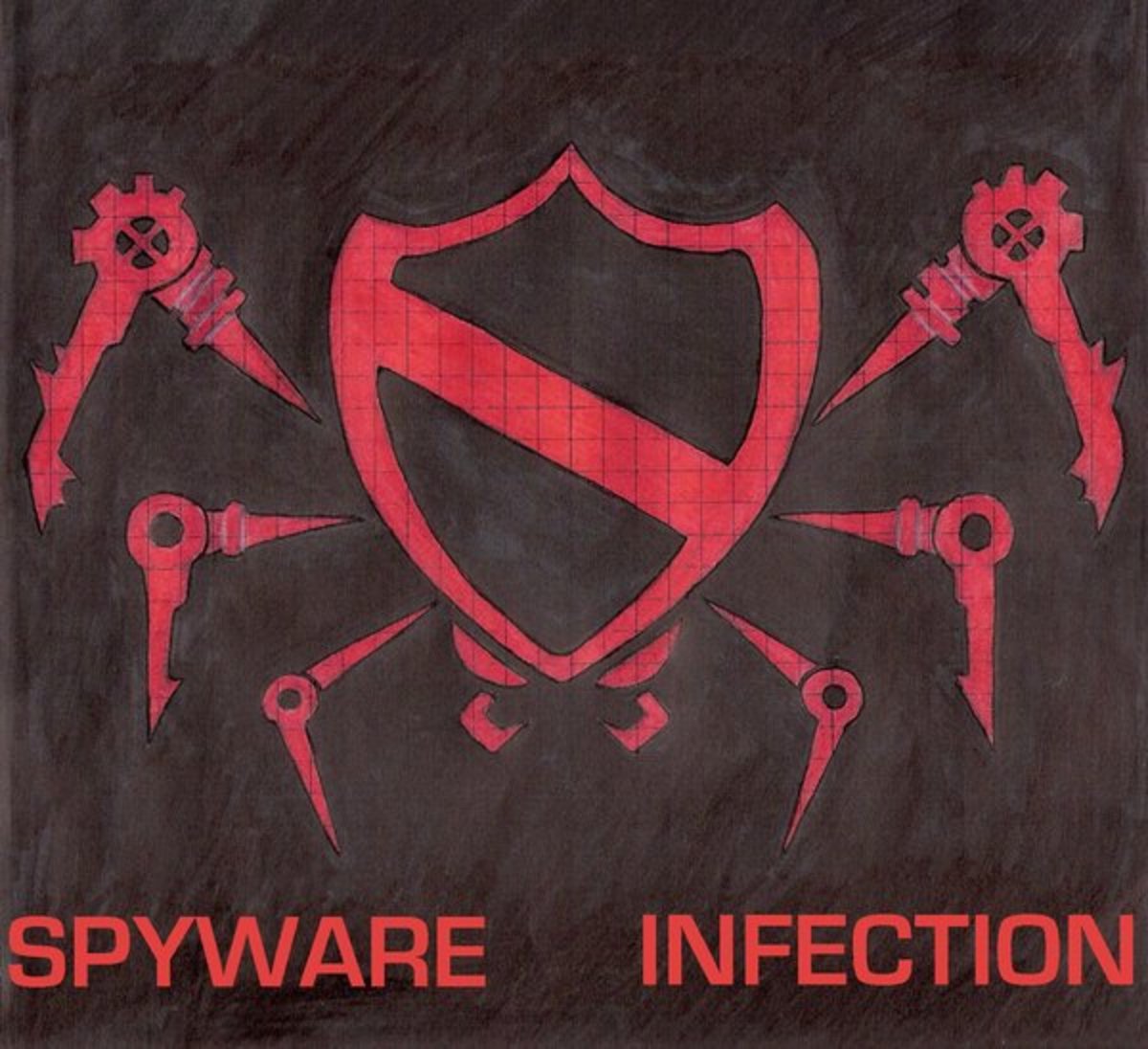Sounding the Death Knell: Why Black Hat is Doomed

Ever since the internet grew out of college and government networks and into the homes and lives of ordinary people in the mainstream, one of the most popular searches has been for quick and easy ways to make money online. Rather than focussing on healthy and successful ways of doing this, the majority of sites and pages on the internet that advertise this are offering immoral, unhealthy, and ultimately untenable approaches called Black Hat techniques.
There are a lot of these kinds of techniques for making money illegitimately, and more of them are being schemed up every day by people who want to acquire as much value as possible from the internet (in the form of money) while doing as little as they can and providing as little value back as they can get away with.
We've all heard of spammers, people who buy lists of e-mail addresses and send massive amounts of e-mail out to people, flooding their Inboxes with ads for cheap designer alternatives to Viagra, supposed deals on pharmacaeuticals, and of course scams designed to convince naive and unsuspecting internet users, like elderly retirees, to send away their money in the hopes of making even more of it back.
Some Black Hatters use a sum of money to buy up lots of domain names on the internet in bulk for next to nothing, put nothing but advertisements on them in an attempt to generate revenue, and hold the domains for ransom by charging thousands of dollars to people who would actually like to use those domain names. They then put most of that money right back into doing it all again, shutting out users who want to provide innovation and value to the public. Success for these domain-selling Black Hatters comes at the public's expense.
Other Black Hatters design their own computer viri (or more often, "borrow" someone else's) and create vast zombie networks, ceaseless armies of other peoples' computers out there on the internet that now serve the Black Hatter's purpose in secret. This is often nothing more than sending them all to the Black Hatter's website and forcing them to click on his or her advertisements, which brings money to the Black Hatter. These tireless hordes of infected computers spread the contagion, infecting still more computers in the process. This in turn causes inestimable problems for the legitimate owners of these computers, as the machines begin to slow down to a halt from the extra tasks, the loss of available internet bandwidth, and the unforseen incompatibilities of the Black Hat designer's code attempting to execute instructions in an unfamiliar computing environment on the user's machine. Ultimately either the Black Hatter's code is discovered and removed by anti-virus programs, or the machine stops working entirely.
More recently, Black Hatters have been using RSS technology to automatically generate scraper sites. They automatically "scrape" original, worthwhile content (such as well-written articles) from other websites, post that content on their own pages amid a garish carnival of ads, and hope that internet users will find these pages through search engines and click on their ads.
Black Hat techniques like these obviously provide little or no value to the internet user. They are an attempt to pull value out of the internet (in the form of money) using various methods, and provide as little value as possible back. If the approach of Black Hatters were to be summed up in a statement about themselves, the statement would be, "I am a person who finds it worthwhile to add value to my life by taking value away from other people." Ultimately, their choices and actions are a statement about themselves. It is a statement they make about themselves every time they do it, because actions speak louder than words.
Lots of average, ordinary people come to the internet with their personal money woes and attempt to solve them through quick-fixes like Black Hat approaches. They conveniently avoid facing the fact that, just like in the real world, their choices and actions affect the lives of others. It's uncomfortable to face if they're going to use Black Hat approaches, and so they either pretend that the internet is just like any computer program they use, designed to serve their needs and their needs alone, or else they teach themselves to think less of everyone else in the world. Sometimes, they learn to reassure themselves by making convincing arguments why what they are doing is actually a worthwhile service, and so they learn to deceive themselves on an ongoing basis in their lives, pretending that terrible choices are actually good and healthy. All of these approaches ultimately hurt the Black Hat user in ways they usually did not take into account. By getting into the habit of lying to themselves, they become used to accepting pat, phony answers and excuses in their daily lives, and those lives become less worthwhile as a result of how that kind of thinking shapes their choices on an ongoing basis. By thinking less of others, they learn to become emotionally-isolated, egotistical hypocrites, no better than the corrupt politicians who do essentially the same thing to them on an ongoing basis. The emotional isolation builds a thick wall around them, decreasing their ability to form meaningful relationships with other people both online and offline. These changes in their thinking, and gradually in their choices and their lives, cause them to have lives that are much less worthwhile, with few meaningful friendships and a pattern of undeserved egotism and self-justification that cause them to be arrogant and insensitive to those around them, distancing them still further.
While all this is going on, sites on the internet that are being taken advantage of are discovering the new techniques. New updates are made to virus scanners, e-mail services now routinely scan for spam e-mail in new and innovative ways, and advertisers like AdSense are finding new methods and algorithms for weeding out ad abusers. They have to, because any structured system must have more value being supplied to it than is being taken away from it, or else it collapses. So these online avenues get wise to the problems the Black Hatter is causing, find ways to prevent him from causing them, and close the loopholes. This means that in order to continue his choice for Black Hat approaches, he must constantly devote his time and effort to finding or creating new loopholes in new and existing systems.
Let's say he finds them, through an online source. Wherever he found them, other Black Hatters are looking for them as well. As new Black Hat techniques are introduced to the Black Hatting community and implemented by Black Hatters, they are becoming more visible as exploits because more people are using them, and they're costing the systems they exploit money every time they're used. So exploits have a limited shelf-life that decreases over time and usage. Like all quick-fixes, they only seem to work for so long, and then new ones must be found to replace them. The same applies if he attempts to create exploits himself - if they are shared with others, they rapidly decrease in value as everyone begins to use them, too. If he keeps them to himself, his exploits decrease in value more slowly as he drains whatever system he's exploiting himself... but the value of his exploit still falls as he uses it to drain value from the system, because it will determine the system's need to take action against his exploit.
The Black Hatter now finds himself scouring the internet for new exploits he can briefly use (or devoting most of his time to developing one for himself), while his real life is deteriorating as a result of his choices and value system. All of this as a result of a choice to make a quick buck. Not only is he not getting something for nothing, he is devoting more and more of his time and effort into something that works less and less effectively and is detrimenting his own life and the world at large. In this, Black Hatting has all the characteristics of a good, solid heroin habit... without the payoff.
This is why Black Hatting is on its way out. Consider this: Black Hatters know systems theory in and out like the back of their hand. They're used to analyzing how systems work, and what can be altered and adjusted to produce the results they want. And Black Hatting has been around since the internet began. (Actually, it's been around since the start of civilization, but Black Hatting formulated it into a developed science.) And it's an approach that doesn't work in the long-term, so this flaw must be offset by the Black Hatter putting more and more of his time and effort into it. At some near-future date, Black Hatters will notice that what they're doing is reaching a point of diminishing returns, financially, legally, socially and personally. Because of their intelligence and their knowledge of processes and systems, they literally cannot escape noticing that what they are doing is ineffective - and why. As systems like AdSense devote more time and energy to closing the loopholes, it adds to their costs and they pass them on by decreasing the amount of value they can offer to everyone - Black Hatters included. Black Hatters will evaluate the flaws in their own approach, and they will necessarily have to correct them. The primary flaw, of course, is not learning to add value in ways that are not costful to themselves. Correcting this simple fundamental flaw in their approach would solve everything, and make what they are attempting to do sustainable and increasingly effective. In knowing how to do that, I am ahead of the curve - and loving it. When Black Hatters as a community learn how to do it, and why it is to their benefit to do so, we'll see them starting to design, innovate, and share new ways to do that... and the Black Hat community will start to resemble a problem-solving, intellectually-based social niche equivalent of the New Age movement. That's when the most subversive thing to do in a world like this, make systems that actually work and serve a meaningful purpose, will again become the activity of choice by intelligent, self-motivated people.
It's going to be great to see.









